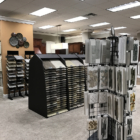So many of today’s lifestyles are go-go-go, packed with social, familial and work obligations. Those of us who aren’t yet retirees often juggle competing priorities and important people. Add the complications of managing a household, plus tending to home projects and maintenance, and it’s enough to make some folks curl up in a ball.. or, to binge-watch on-demand movies.
We at ICI Homes are right there with you. But we’re sharing a positive rebuttal to all that stress and all those constant demands. It’s called Feng Shui tips for busy people. Or, how to practice calm.
What’s Feng Shui?
You already might be familiar with it, but if you’re asking, “What in the world,” we promise we’re not going metaphysical on you. Feng Shui is actually rather practical. It’s an ancient Chinese focus on harmonizing your environment.
The best way you do that is by living in a home that fits your lifestyle, and by aligning your lifestyle with who you are, or who you’re working to become.
A home that functions well, feeds our positive energy. A home that doesn’t function well, feeds our negative energy. Practicing Feng Shui means examining how we relate to our possessions and surroundings. Here’s one example:
Allowing unfolded laundry to pile up, or putting off cleaning the bathrooms for yet another weekend, causes stress. Folded laundry and clean bathrooms ease stress. Not necessarily because you should fold laundry and clean bathrooms (well…), but because of how doing or not doing either activity makes you feel.
Checking FOLDED LAUNDRY and CLEANED BATHROOMS off your weekly chore list makes you feel good. Guess what? You’re practicing Feng Shui.
Feng Shui isn’t all about housework
We hear those sighs of relief. Odds are most of us prefer living in clean, neat homes. Yet families, pets and life stages often dictate how clean and neat our homes are or aren’t. That’s okay.
Since practicing Feng Shui focuses on you, rather than what social pressures dictate, consider where you fall on the housecleaning scale. Must everything be in its place at all times? Pass a mother-in-law’s white-glove test? Then you’re probably happier in a neat, organized home.
If dust on bookshelves doesn’t bother you — you know you’ll clean them at some point — and one day’s dishes can overnight in the sink without cuing guilt — as long as you can’t see the dishes — then a little clutter and dishevelment cuts you the psychological slack you need to deal with more important issues, like meeting work deadlines and showing up for your kids’ youth-league sporting events. That’s also practicing smart Feng Shui.
The other part of Feng Shui
 “Wait,” you say, “There’s more?” There is, and it’s the really fun stuff!
“Wait,” you say, “There’s more?” There is, and it’s the really fun stuff!
Per Chinese tradition, five natural elements should be included somewhere in your home, to help balance your environment. Alphabetically, these are earth, fire, metal, water and wood.
Think of it as lifestyle chemistry. Each element already is used to construct your home:
Earth = pre-construction hauling and grading.
Fire = any welding.
Metal = nails, to name only one item.
Water = your plumbing system.
Wood = your home’s framing.
All the above is infrastructure. Now consider using those five elements inside your home, whether decoratively or practically, in ways that you can use or enjoy every day (to really work that Feng Shui balance). Here are few suggestions:
Earth: since it literally supports us all, it represents solidarity. You don’t have to work too hard to find an earth element. If you’re a gardener who enjoys tending flower beds, patio planters or backyard tomato plants, consider yourself done with the earth element. Non-dirty alternatives are any kind of art that features landscapes. Paintings, sculptures and so on.
Fire: it represents power — the Feng Shui element with the most potential oomph. Overloading on this element, such as painting all interior rooms red, is probably a bad idea. But deployed judiciously, red-painted walls and furnishings are pure joy. They also pump up a room’s energy volume. Try painting a small powder room red, or buy red stools for the activity/craft room.
A fireplace, whether gas- or wood-powered, is a great Feng Shui move during colder weather.
Metal: it represents financial well-being. So don’t forget this element. And full piggy banks don’t count. Think decorative, such as a wrought-iron, candle-only light fixture over your outside living space. Any art that incorporates metal is a score, and so are the cast-iron planters that hold manicured boxwoods on either side of your front door.
Not into metal as part of your interior design? Sorry, pots and pans don’t count either. But paint does. Try a large floor mirror (or a smaller one to hang on a closet wall) that’s bound by a gold, silver or bronze frame.
Water: it represents good communication between family members. Water flows like understanding should. Still, super-important and one you can use on warring siblings:
“See the swimming pool? You two should be as quiet as its surface — in about five seconds.”
Seriously, research has long declared that the sound of water has a calming effect, whether it’s a burbling stream, lapping waves at the beach or spraying fountain. A pool, fountain and spa tub all are obvious and enjoyable at-home Feng Shui element options. You could also consider a well-lit aquarium in an interior living space. It invites instant calm.
Wood: it represents creativity and inspiration, and perhaps is the easiest Feng Shui element to add. Many of the design flourishes you choose for your home, and some of your favorite possessions and pieces of furniture, undoubtedly contain wood, often turned by a craftsperson.
That’s the custom parquet floor in your foyer. The antique dining table you shipped back from France. The carved walnut salad bowl with matching serving tongs that was a gift from someone you can’t remember right now, but whose taste you love.
Feng Shui helps you win the clutter battle
Full disclosure: practicing Feng Shui could prompt a showdown with household clutter!
Why? Clutter weighs you down psychologically. If you’re skeptical, think of any drawer, cabinet or closet you dislike opening or consciously avoid. It’s likely too full, a complete mess or so disorganized you can’t find what you need, so you continue avoiding it.
And you’re not alone — nearly everyone has a “junk” drawer, frequently in the kitchen. Think random batteries with no expiration date, too many silicone spatulas, mismatched plastic lids for plastic food containers, or excess twist-ties from long-gone packages of grocery-store bread.
How about the bathroom? Cosmetics whose expiration dates were a year ago. Old bath and hand towels from your previous home. Too many buy-one-get-one-free bars of soap and nowhere to store them.
Anybody game for closets? We know. Those bastions of clutter. Pants you’ll wear when you lose 10 pounds. Ugly neck ties your kids or grandkids gave you for birthdays, Father’s Day and the holidays, that you can’t bear to throw away. Eight pairs of sandals. Golf clubs.
Sooner or later, it’s all too much. You get disgusted and go get trash bags. That’s Feng Shui.
The de-cluttering process not only clears drawers, closets and rooms, it also clears your mind, regardless of whether you’re aware of it. You’ll no longer grit your teeth when you think of, or approach those spaces.
Here’s another psychological benefit of Feng Shui: use at least some of the stuff you discard to do some good. Definitely have a garage sale if it works for your household. Take furniture, jewelry and dress and designer clothes to consignment shops. Don’t simply throw things away (do recycle those iffy batteries) — donate all items in good condition. Charities and non-profits will thank you, plus you’ll earn a tax deduction if you collect a receipt.
Feng Shui fosters positive change
A major de-cluttering project is one sign of it, but another is how you relate to your home. Here, we don’t mean the possessions that fill it — we mean design, interior decorating and exterior landscaping.
Areas inside and out that bug you, or that everyone in the family avoids — a solemn, formal living room, for example — are clues that those areas are out of Feng Shui balance. They’re no-man’s land.
Reclaim them! Redecorate if you must, but welcome them back with another function. If you don’t have a home office and need one, there you go. How about an all-purpose activity room that doubles as a library? All yours.
Paint colors and lighting are other clues. Tired of dark rooms? Ditch heavy window coverings. Want lavender bathroom walls even though conventional wisdom says to play safe with neutral white or beige? Go with your instinct. Feng Shui is talking to you!
Ready to practice Feng Shui in your new custom Florida home? ICI Homes is Florida’s Custom Builder. Talk to us here.








